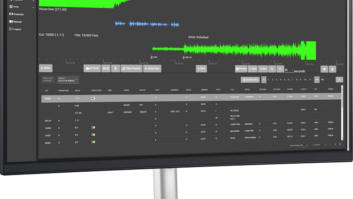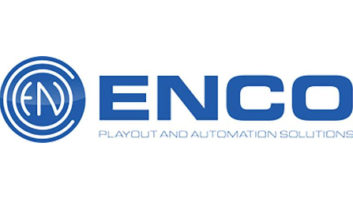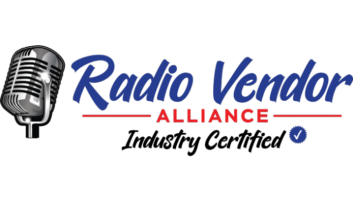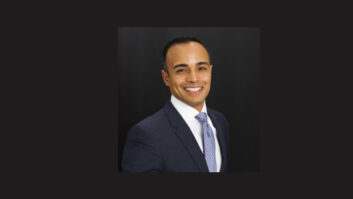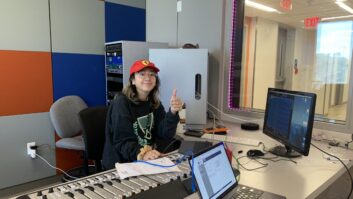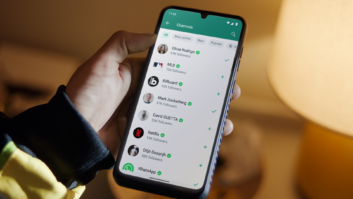CINCINNATI — “Intelligent, mature and confident radio station seeks long-term relationship with automation system …”
If there were personal ads in the pages of Radio World, ours surely would have read something like that. On June 16, 1993 WGUC(FM) in Cincinnati replaced our cart machines with a newfangled digital automation system called DAD (Digital Automation Delivery) from a company named ENCO Systems.
WGUC(FM) was an established classical music and NPR news station for some 30 years, but ENCO (the maker of DAD) was just starting out. WGUC was their customer number 11.

Mike McAninch: ‘Our latest incarnation of DAD takes into account that, unlike in the past, storage is cheap.’
The initial equipment consisted of a Novell server and three DOS-based workstations. The workstations had no internal storage. They booted from a floppy drive and connected to the server to playback audio from there.
It was great for playing back promos, underwriting, etc., but what about the music? Storage space was expensive; but in 1999 we purchased a whopping 300 GB RAID system to attach to our Novell server.
That was not nearly enough space for our entire library; however, we managed to put a good chunk of our active playlist on it by encoding it as MPEG 2.
Changes
In 2005 big changes were taking place inside and outside our organization.
We purchased WVXU(FM) from Xavier University. With that, the management decided to have a full-time classical station on WGUC and a full-time NPR/talk station on WVXU. At the same time, the Public Radio Satellite System was preparing to roll out its new program distribution system, ContentDepot.
We replaced our old Novell workhorse server with a new 1.2 TB Windows server to meet the audio storage requirements for two stations and the new ContentDepot system. We also purchased an option to have multiple libraries in order to prevent ContentDepot from overwriting our existing audio.
By 2011 our workstations (including ones acquired in the WVXU purchase) were reaching the end of their lifecycle. The hardware was so out of date it was no longer supported by the latest versions of the software.
We undertook a reexamination of what and how we do things. We contacted multiple vendors to see how well they could fulfill our wishes. In the end ENCO was again chosen for our automation system. The decision was based on price, capability and support.
We already owned the software, which helped curtail the costs. Patrick Campion, our salesperson, was also helpful at getting us the most value for our money. He understood what we were looking to do and was able to create a system for us that wasn’t just a one-size-fits-all cookie-cutter solution. That’s where capability comes into play. ENCO’s motto is “DAD can do anything” and they aren’t joking.
An installation of DAD can be as simple or complex as you need it to be. Up to this point ours had been somewhere in the middle. With this new install, we have — at least from an engineering point of view — definitely gone more complex. That is why excellent customer support also was a crucial component in our decision-making.
Our latest incarnation of DAD takes into account that, unlike in the past, storage is cheap.
We have an 8 TB server that acts a central repository for all our audio. It pushes that audio via ENCO’s Gateway utility to the on-air workstations which have 4.5 TB of storage for playback locally. The Cutserver utility acts as a traffic cop monitoring this movement and updating it in the database. This setup was chosen because classical music and ContentDepot can both be storage and bandwidth hogs.
The Watchdog utility keeps an eye on the vital components, and if they stop working, it will restart them. Through the use of a third-party utility called KaVoom we can access any DAD workstation or server from another. This allows us to monitor and run multiple studios from one location.
It has been 18 years since we started using DAD. In that time new technologies have continued to enter the world of radio. Due to its power and flexibility DAD has been able to absorb those changes and do far more than we ever anticipated.
We are confident that DAD will continue to evolve and meet the requirements of the broadcasting community. ENCO’s longevity is proof of the quality of the product and the people behind it.
Mike McAninch is the IS manager for Cincinnati Public Radio.
For information, contact Don Backus at ENCO Systems in Michigan at (248) 827-4440 or visit www.enco.com.





